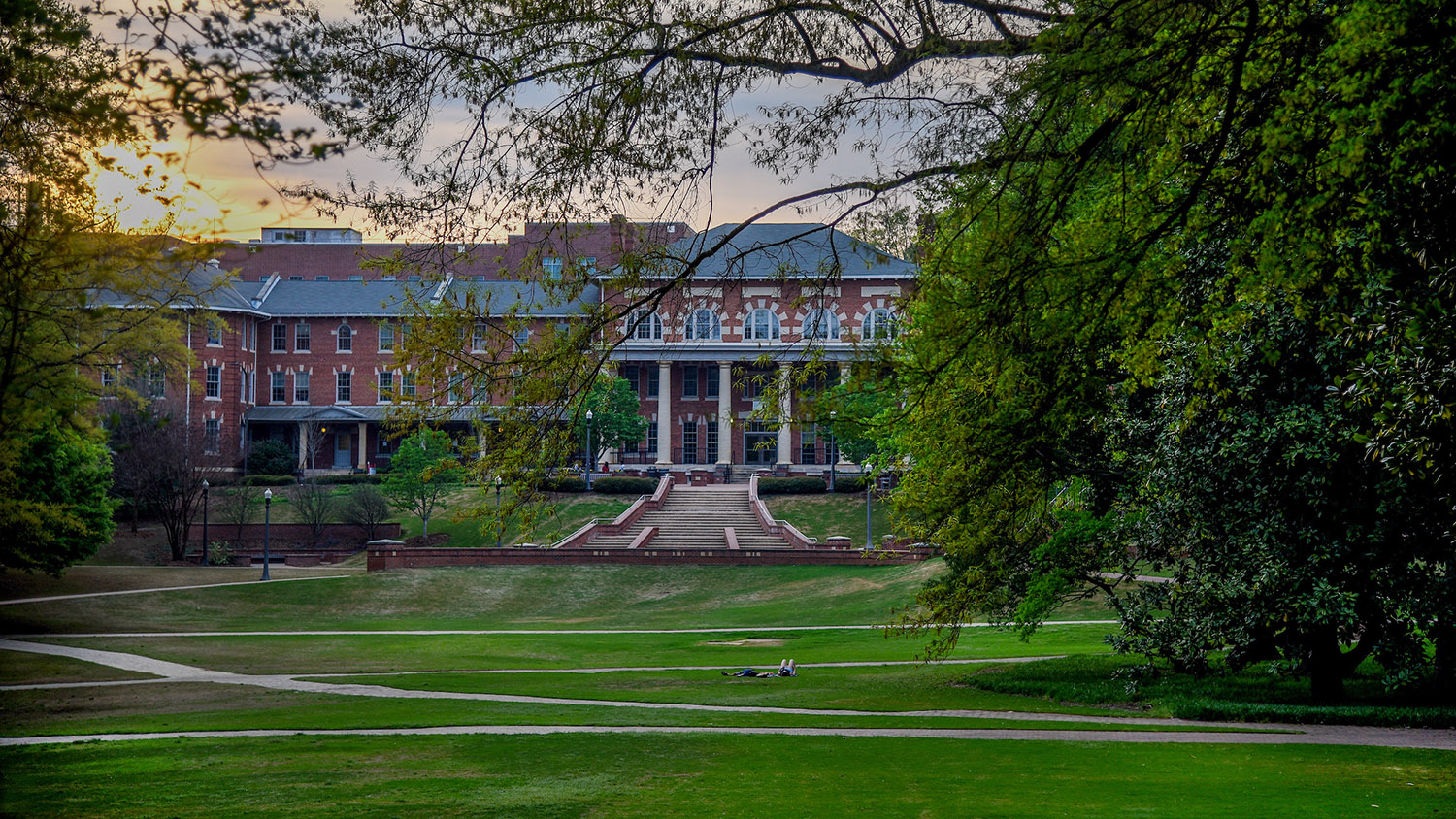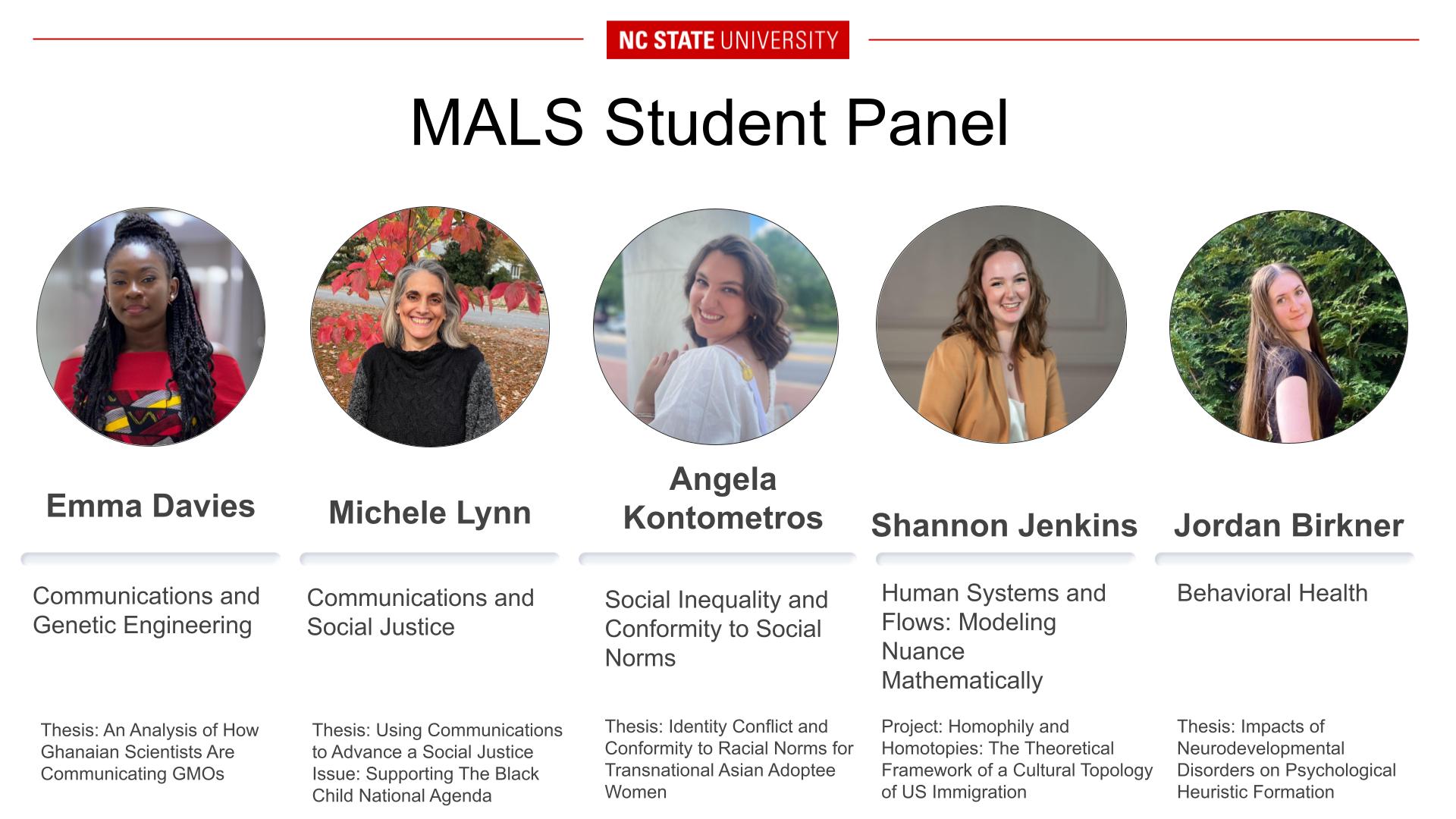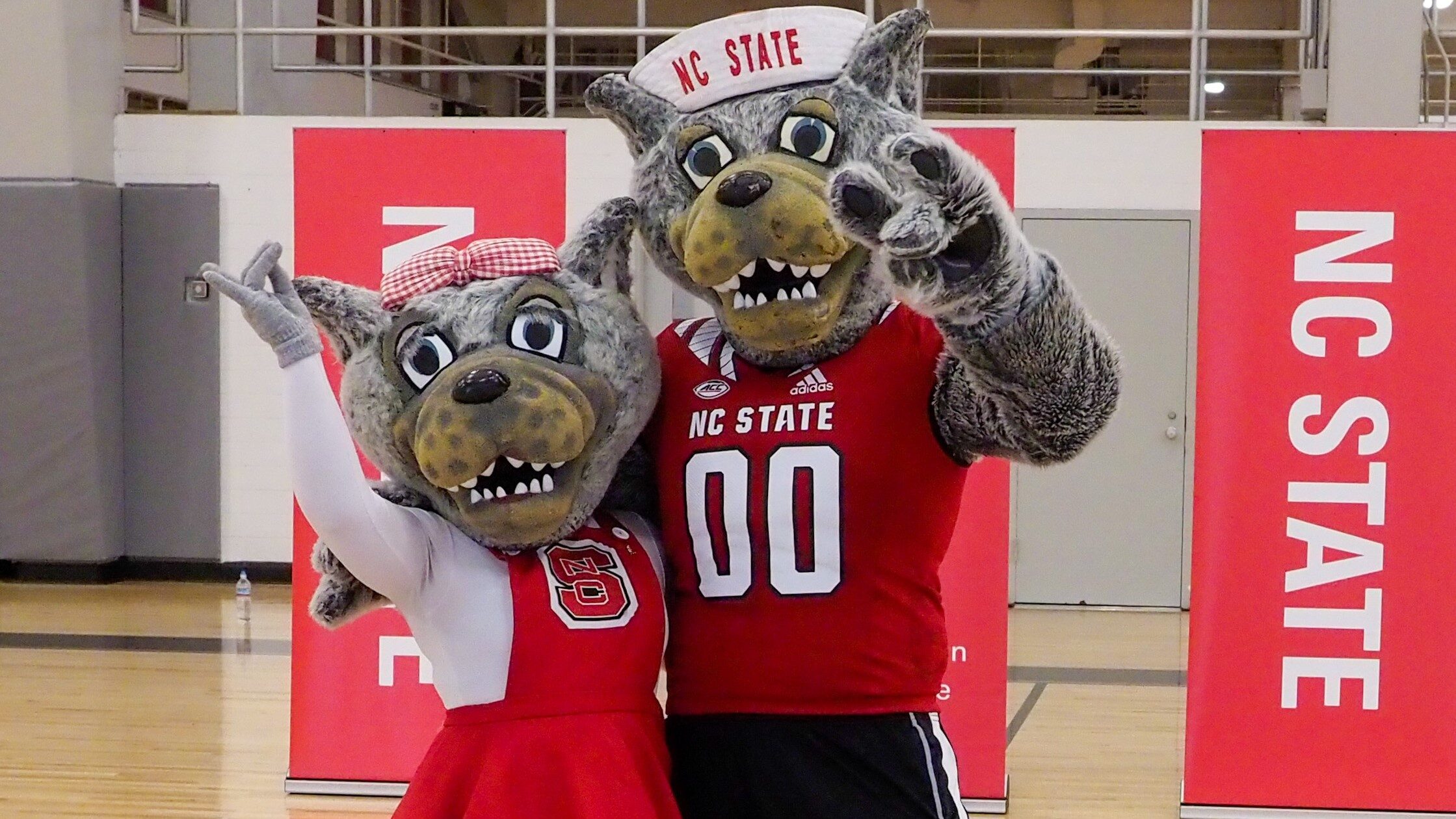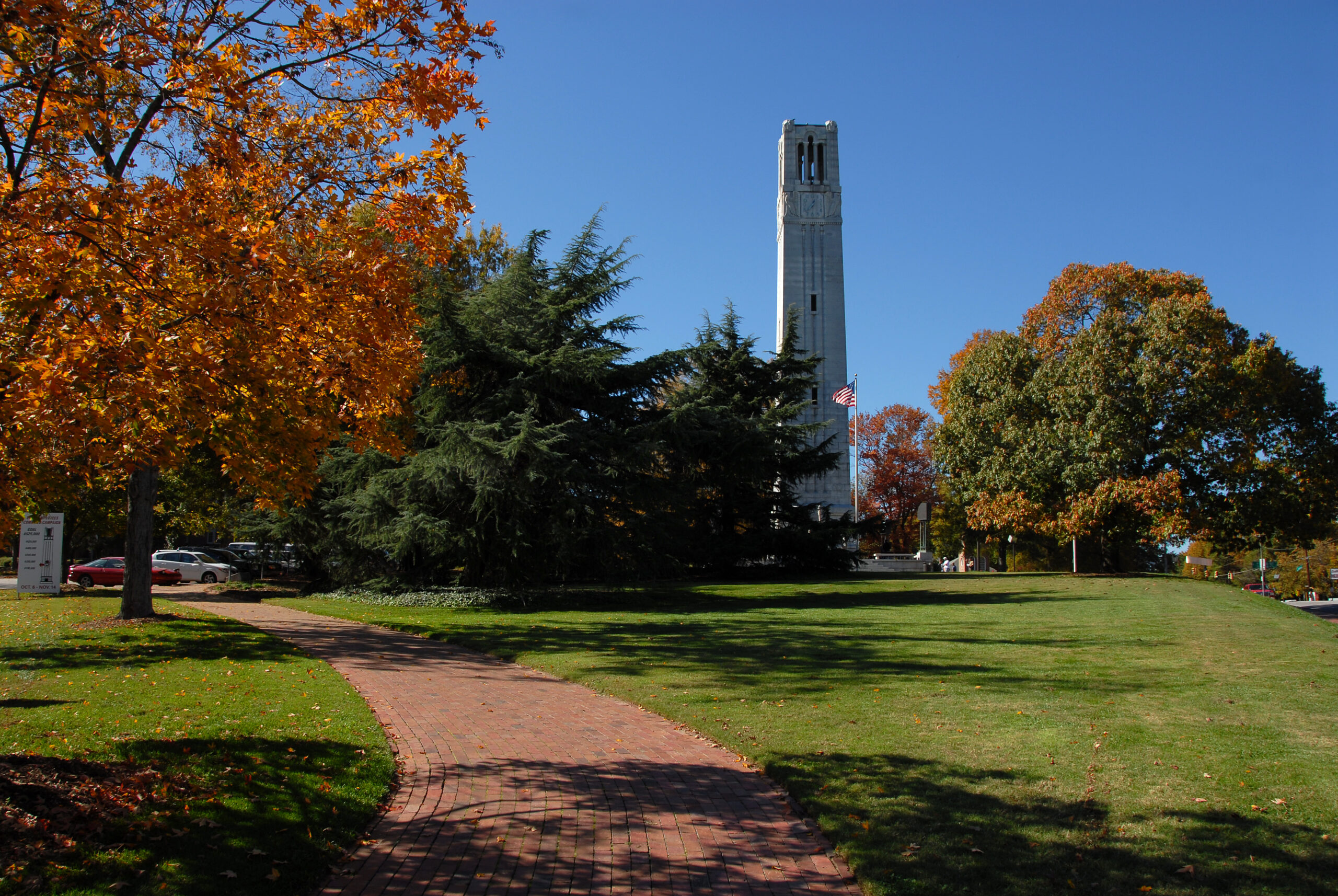MALS Faculty Spotlight: Catherine Mainland

Tell us about yourself! Where are you from? What brought you to North Carolina/NC State?
I was born in Kirkcaldy, Scotland, best known for being the birthplace of Adam Smith and having a famous linoleum factory! I then attended high school in Brussels. I decided to move to the US without ever having been here, so it’s safe to say I was bitten by the travel bug at an early age; it’s my favorite thing to do. I was accepted to Oxford, Wisconsin-Madison, and Chapel Hill for graduate school, and a scholarship from the St. Andrews Society of North Carolina helped me choose. I’ve never regretted that choice, despite being allergic to both mosquitoes and ragweed.
What is your academic and/or professional background?
I went to Stirling University to get my BA Hons in German before completing my M.A. and Ph.D. in Germanic Languages and Literatures at UNC-CH. I then got my second M.A. in English literature here at NC State. I’ve been teaching here since January 2010, as well as at Campbell University for several years. In 2017, I became the Scheduling Officer for the English department, which has shown me a whole new side of the university.
I began teaching during my graduate work in German at Chapel Hill, where we were trained in the Communicative Language Teaching approach. As soon as I began teaching English, I applied a similar philosophy to my literature classes, making sure each lesson is student-centered. Since then, I’ve found these empowering techniques can be applied to every field and every kind of assignment, from a freshman composition skill to a graduate research paper. My current classes all focus on developing my students’ skills as readers and writers, so I found the teaching methods I had been taught translated very smoothly from the language classroom (pun intended).
I’ve developed three seminars for the MALS program so far, two of which I’ve also modified for use in the Honors and Scholars program. In the English department, I regularly teach a range of American and Western World Literature courses, and I am also teaching our course on Women and Literature right now.
What brought you to your field of study? When/Why did you become interested in your area of study/research?
I thought I was going to study Scottish History when I started at Stirling University, but I soon found that was far too fact-based for my skillset. I had always loved reading, and I find learning languages challenging but fascinating, so I soon found my way into a major in German. I was then drawn to the connections between sociology, psychology, and literature during my studies at UNC. My doctoral work focused on hysteria as a mode of expression for female characters in German and Austrian works from the turn of the last century. When I began to study American literature for my second MA, I shifted that focus to examine the portrayal of the male body in works by Henry James. This is now my main research focus, and my current long-term project aims to bring male hysteria in American literature into the wider scholarly discourse about the body.
What is your experience with the MALS program? What attracts you about the MALS program and teaching an interdisciplinary course? What do you feel the importance of interdisciplinarity is?
I love how unique each MALS student’s path is. I’m a first-generation college graduate myself, and I switched majors in between my third and fourth degrees, so I really enjoy working with students who are also “non-traditional.” All of my courses take an interdisciplinary approach, because it allows us to capitalize on the wealth of knowledge in the room; every student has taken different courses, every student has different interests and experience, and every student reads / watches / listens to / and plays different works in their free time, so there’s no knowing where our discussions will take us.
Developing interdisciplinary courses also gives me an excuse to remain a lifelong learner. I’m presenting a paper on domestic colonialism in Elizabeth Gaskell’s North and South at the SAMLA conference in November, which I never would have thought of writing if I hadn’t included the novel in my seminar on the Industrial Revolution. It’s wonderful for faculty to be able to research new topics and develop new courses about whatever we want and call it work!
Tell us about your current research and academic pursuits. Are there any recent accomplishments we can share?
I’m currently co-editing a volume on masculinity studies called Silenced Masculinities, which has brought together work by literature, film, and sociology scholars from around the world, focusing on gender, sexuality, and race in American literature, television, film, music, and fashion. My own contribution focuses on male body language and self-harm in works by Nathaniel Hawthorne.
My co-editor, Dr. Gene Melton, and I also ran two panels on this topic at the SAMLA conference last year; we only planned to run one panel, but the range and quality of the submissions allowed us to fill two with ease. It’s exciting to be working in an emerging field, especially one that is connected to very real gender equality problems in society.
- Categories:


